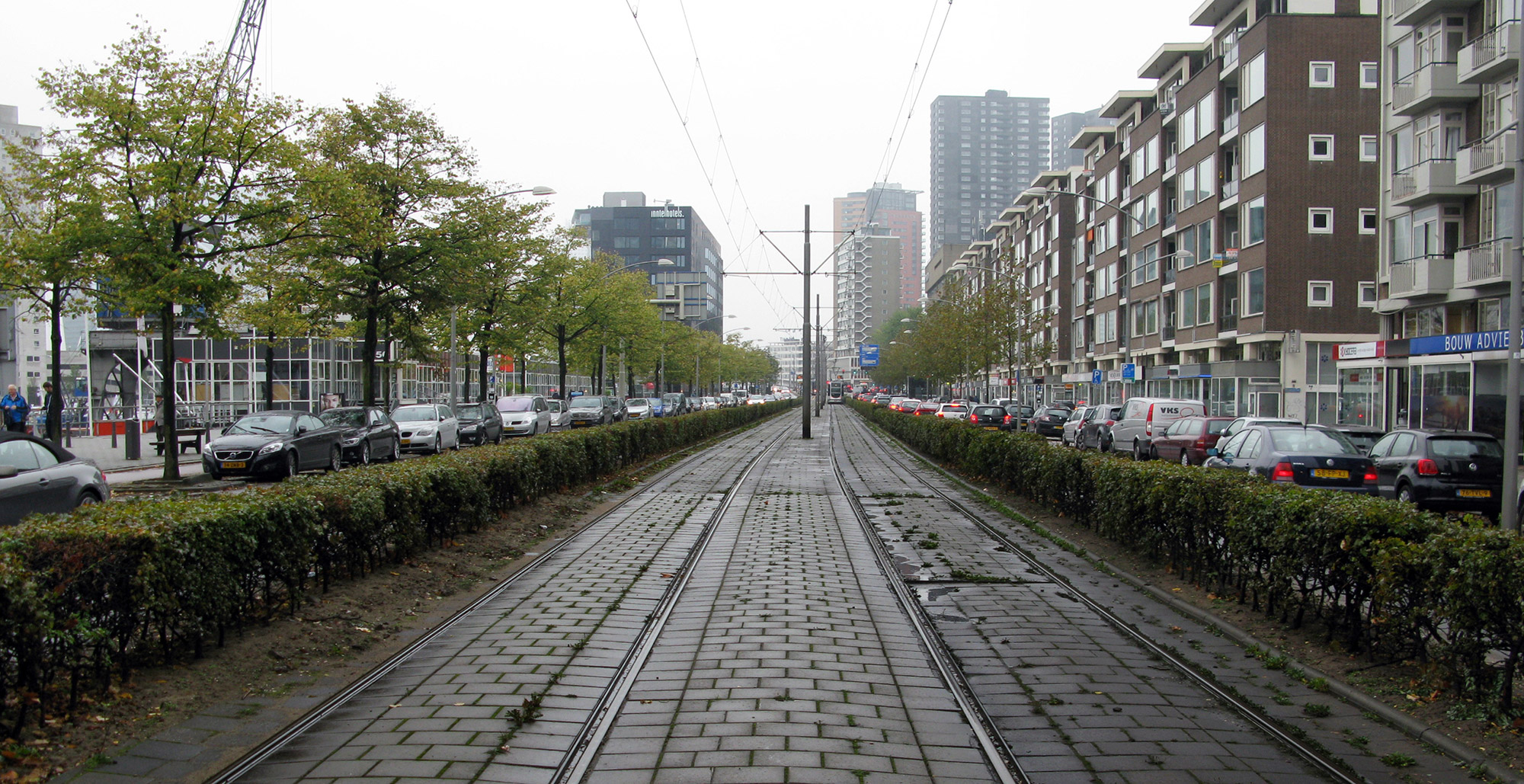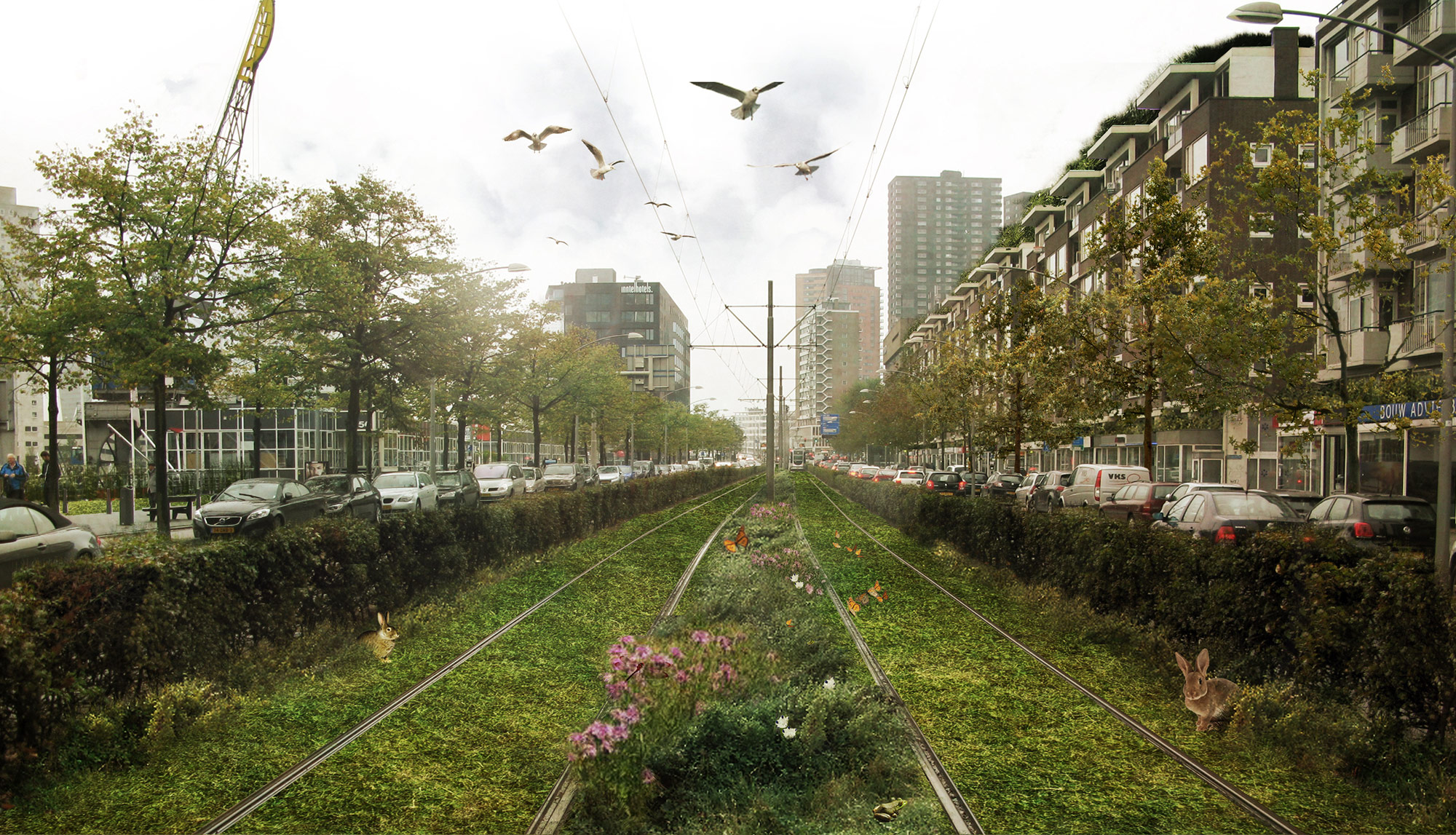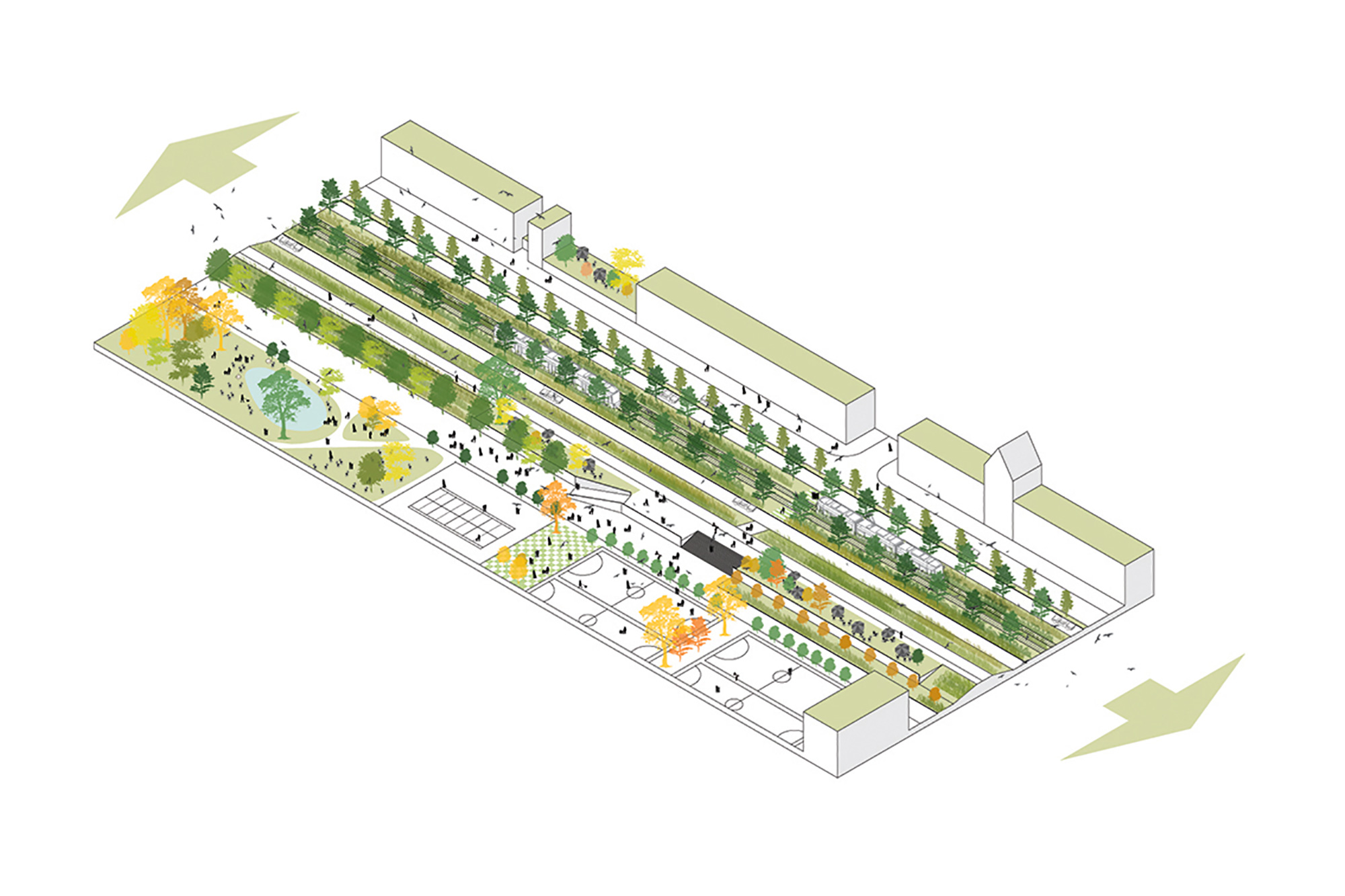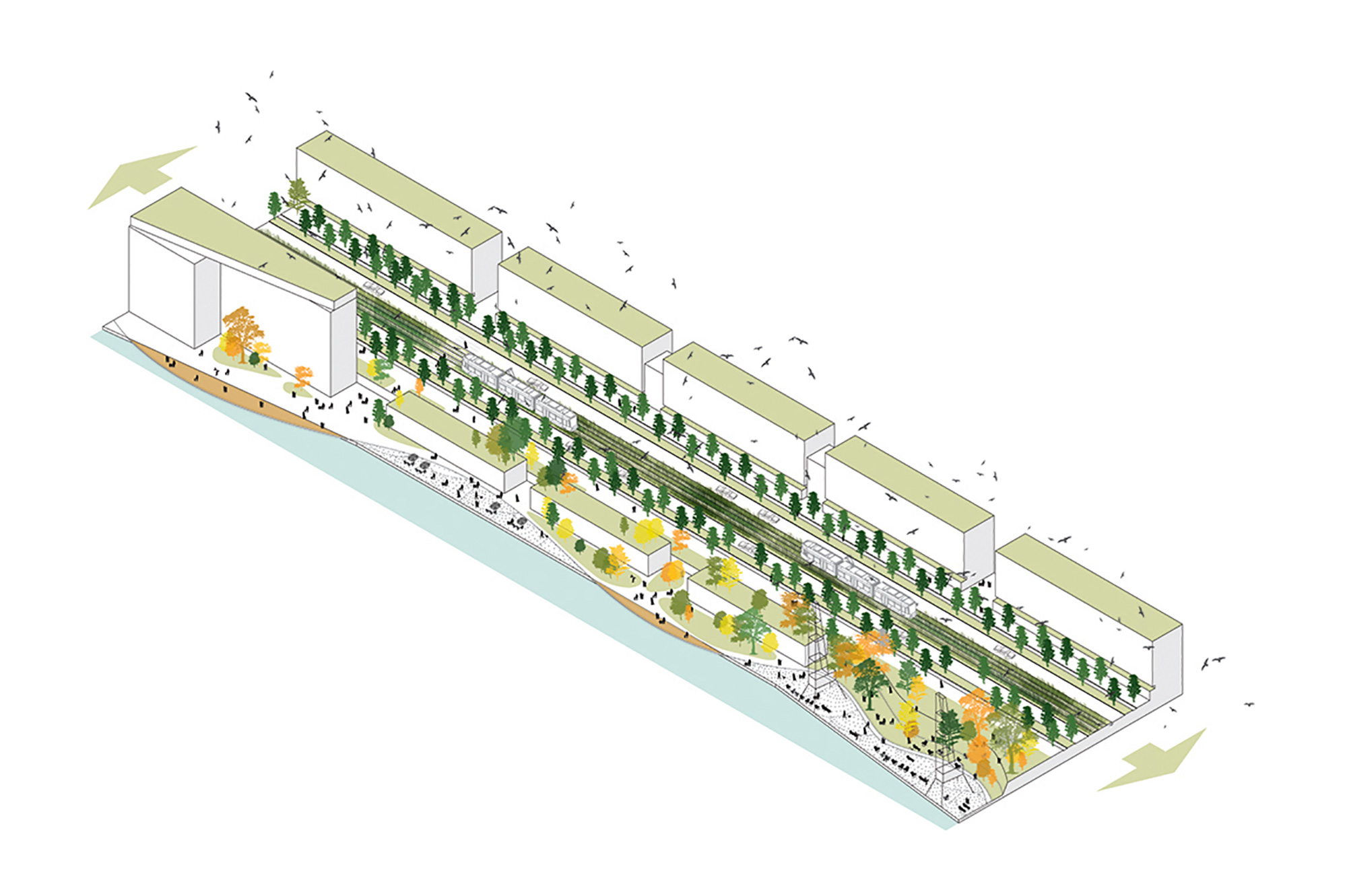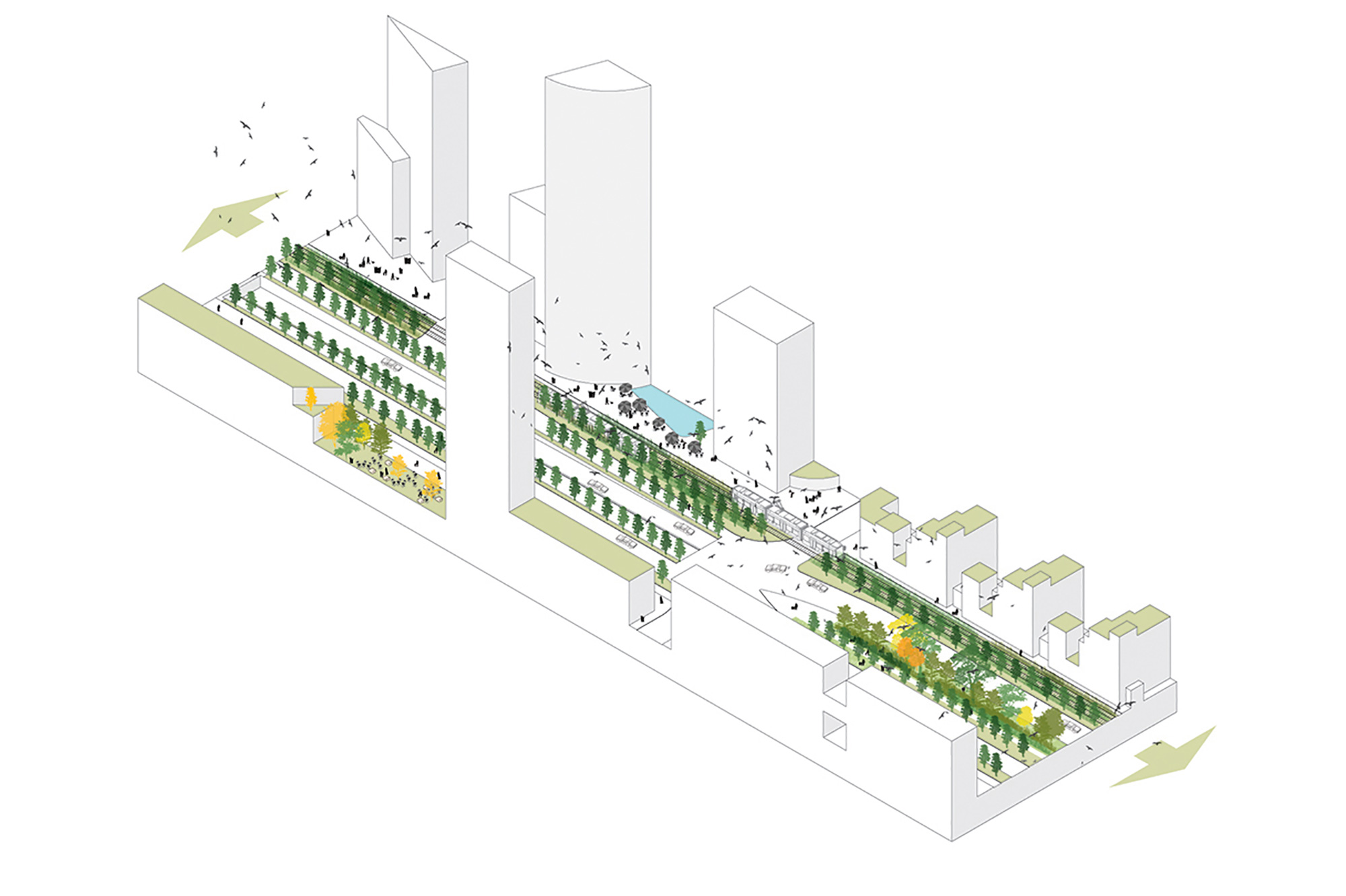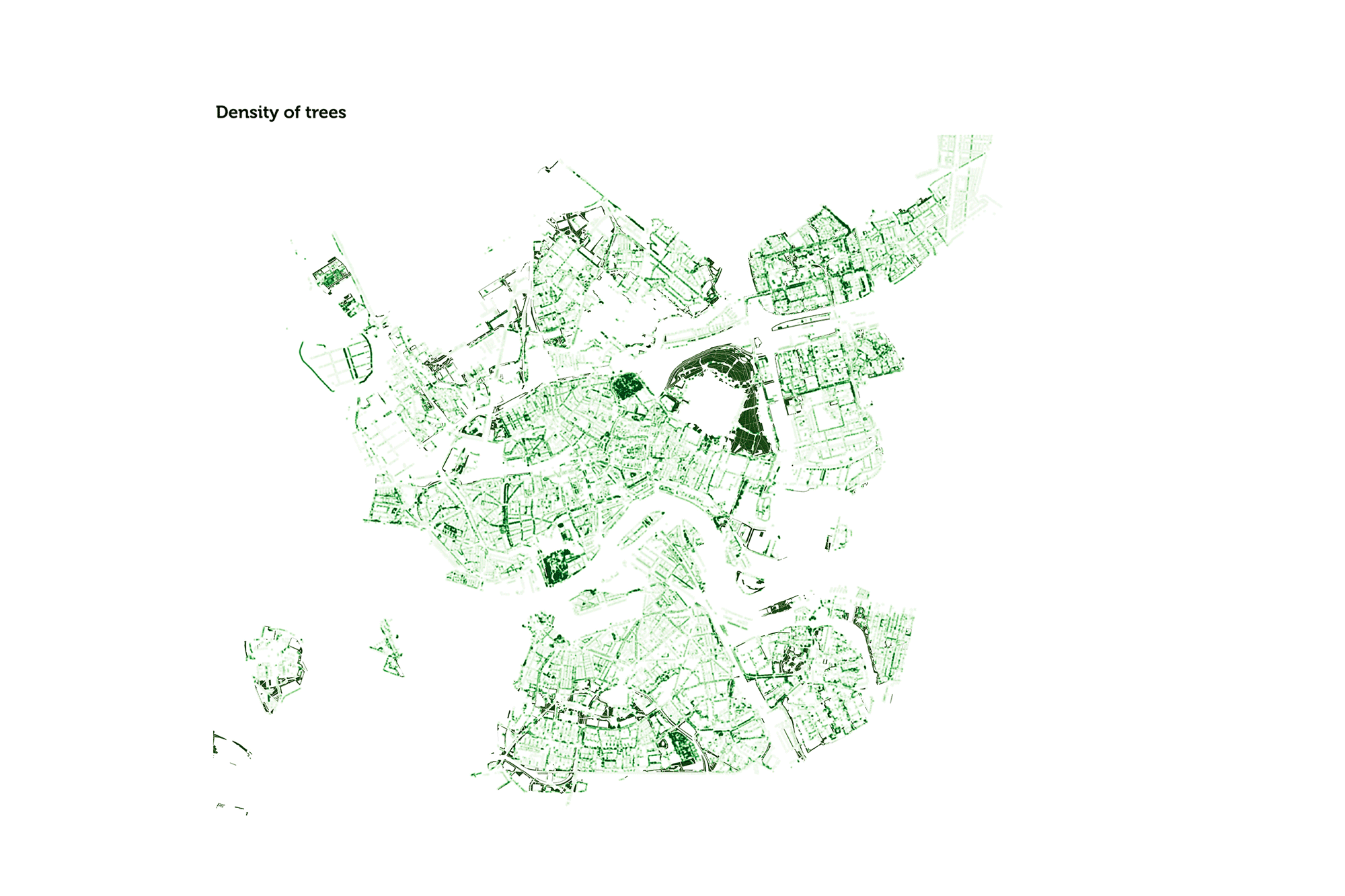Diverse Networks
Rotterdam, Netherlands
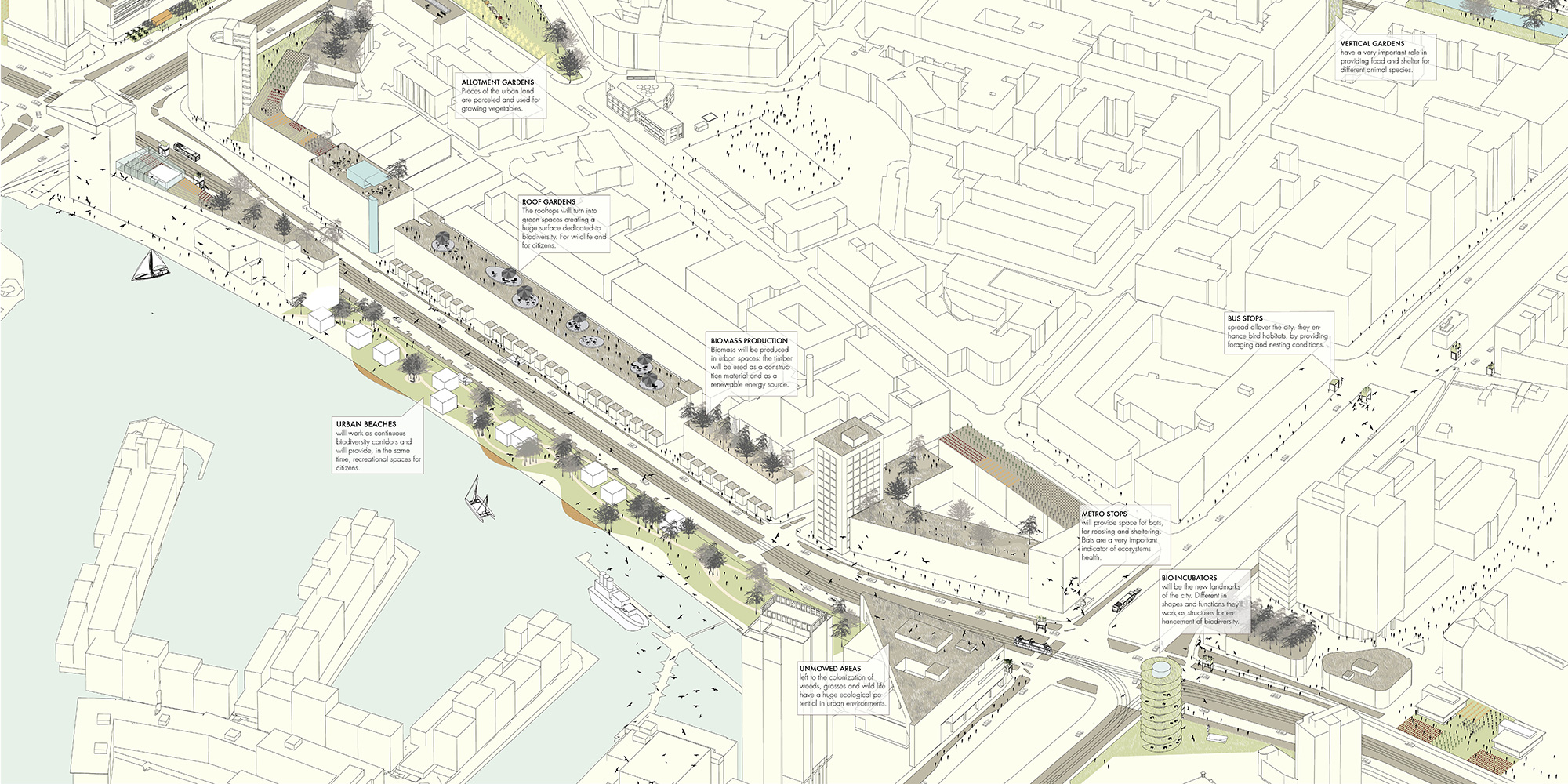
Public transportation is a shared passenger transportation service which is available for use by the general public. Different systems overlaps to reach every corner of the city forming a network made of lines, nodes and points.
Rotterdam is very well connected by public transportation system which is formed by bus, metro, railway, tram and covers in total 634 km in length.
In a biodiversity point of view, the network is a key point for conserving habitats: wildlife (whatever are the species dominating a certain habitat) has to be free to reach ecological cores, the steppingstones, using connections. DIVERSE NETWORKS is based on a very simple question: Which is, in an urban environment, the most extended, existing network? Public transportation! Human networks, in centuries developed and diversified to reach even the more remote part of the city. DIVERSE NETWORKS propose to reuse, adapt and reinvent public transportation network to make them suitable for both humans and biodiversity. Intriguing new designs can be developed for flexible structures, like bus stops and metro stations which provide shelter for the passengers and forage conditions for birds. Street profiles can be smartly re-imagined to be useful for busses and trams and in the same time highways for insects. Railways will grow greener and will be repopulated with butterflies and dragonflies.
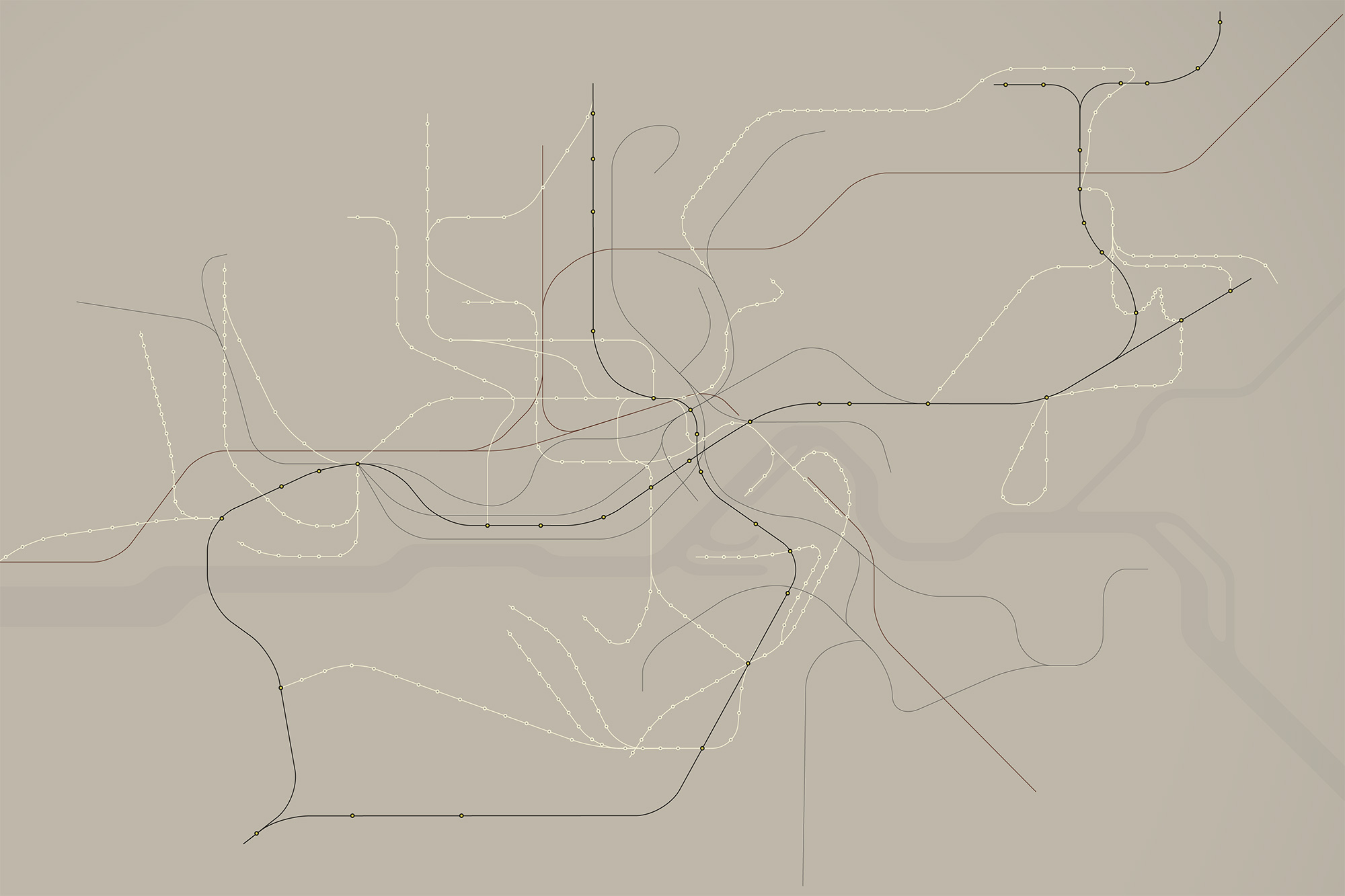
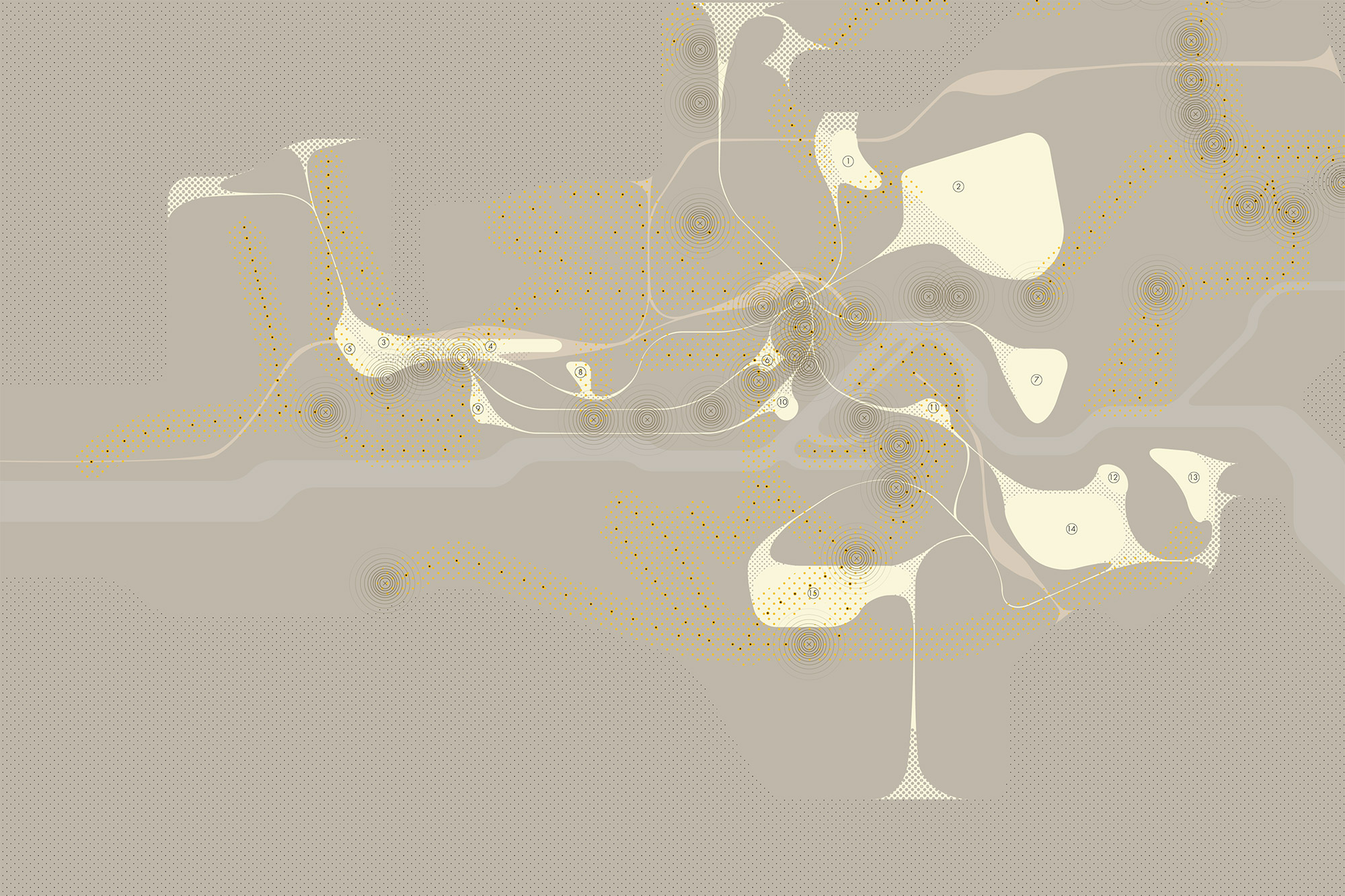
By reusing public transportation infrastructures, Diverse Networks aims to restore biodiversity. In facts, in our cities built areas, industrial sites and transport infrastructures fragmentise natural habitats. This disconnected landscape results in an extremely poor urban ecosystem made of unconnected ecological niches. Diverse Networks it’s not a new green superimposed green infrastructure, but rather a new hybrid system that can combine the need of a shared passengers networks together with a densely spread ecological system.
